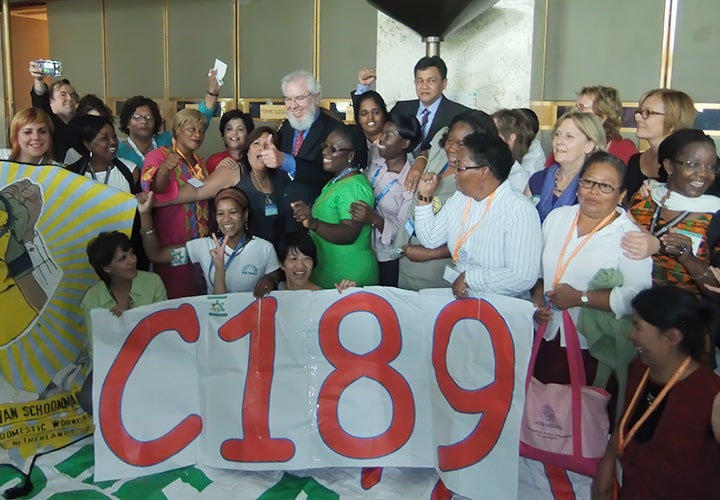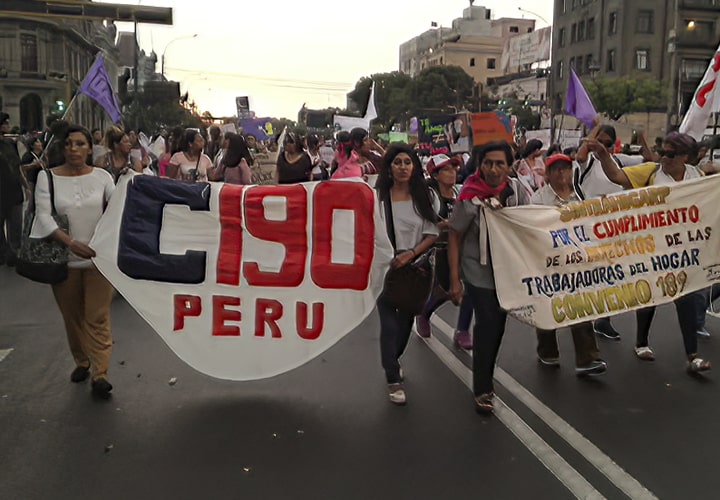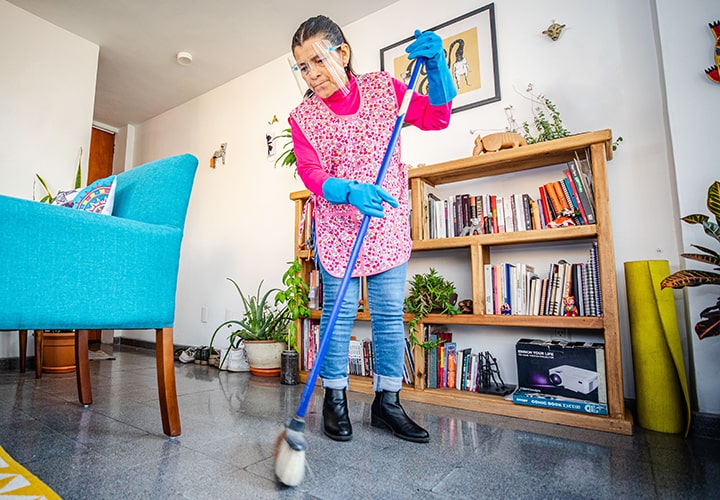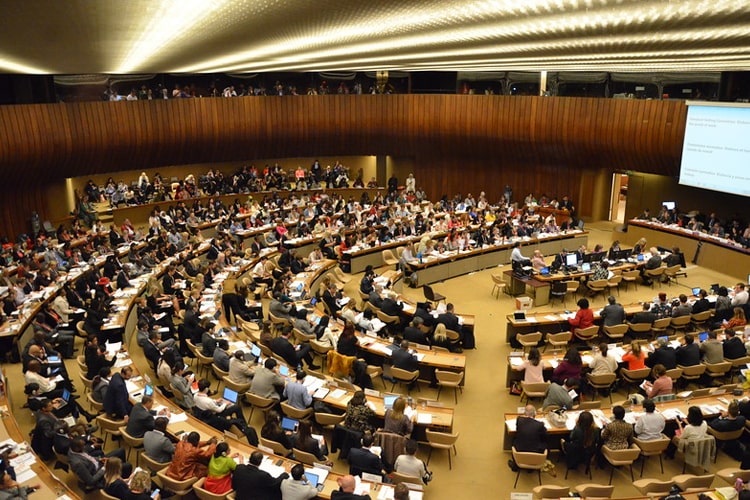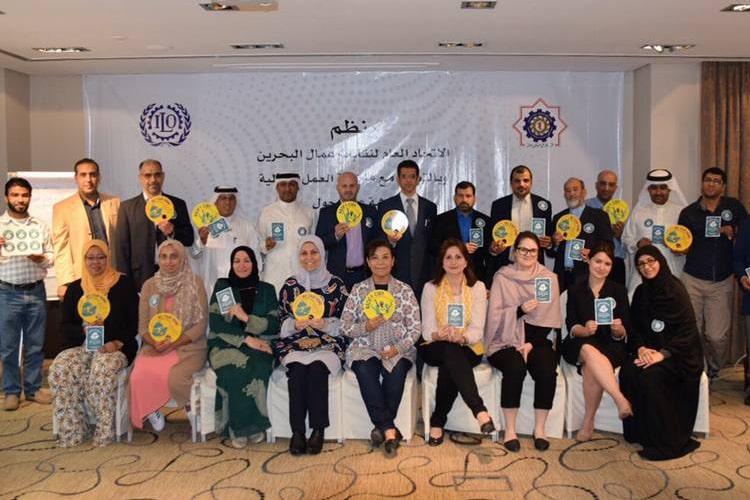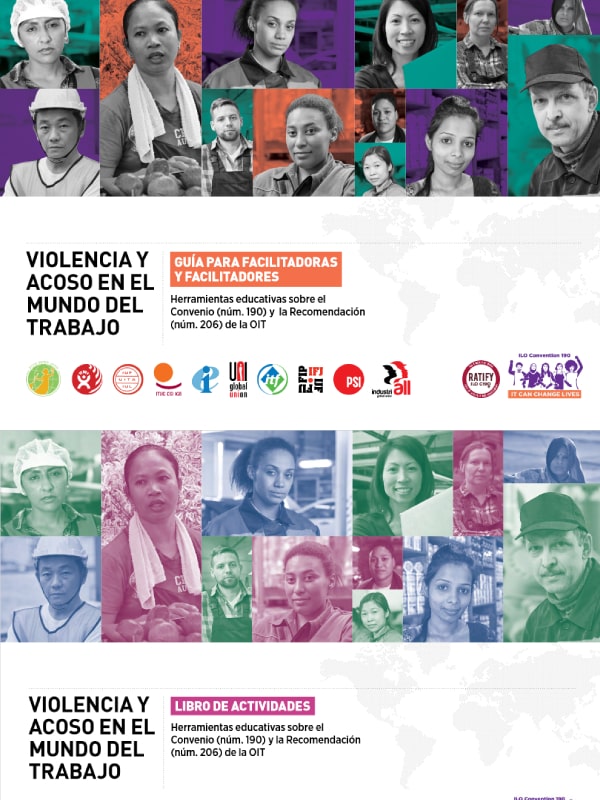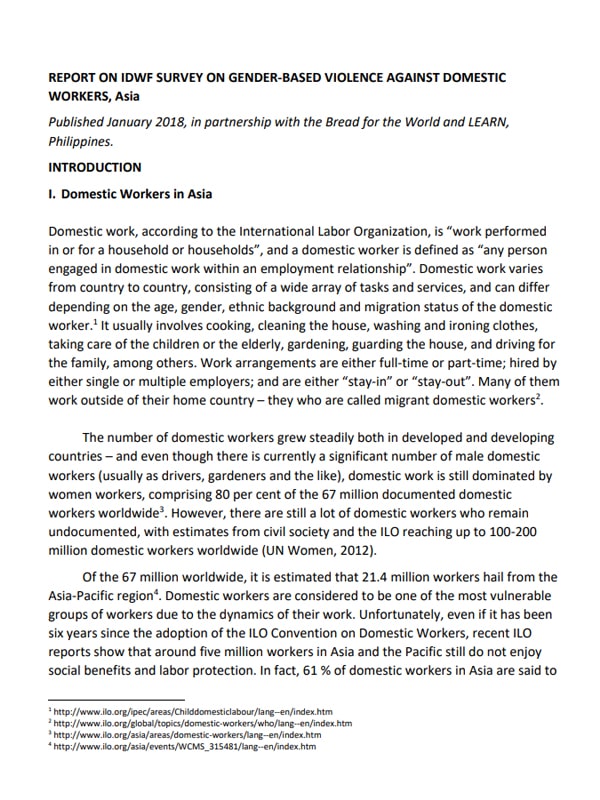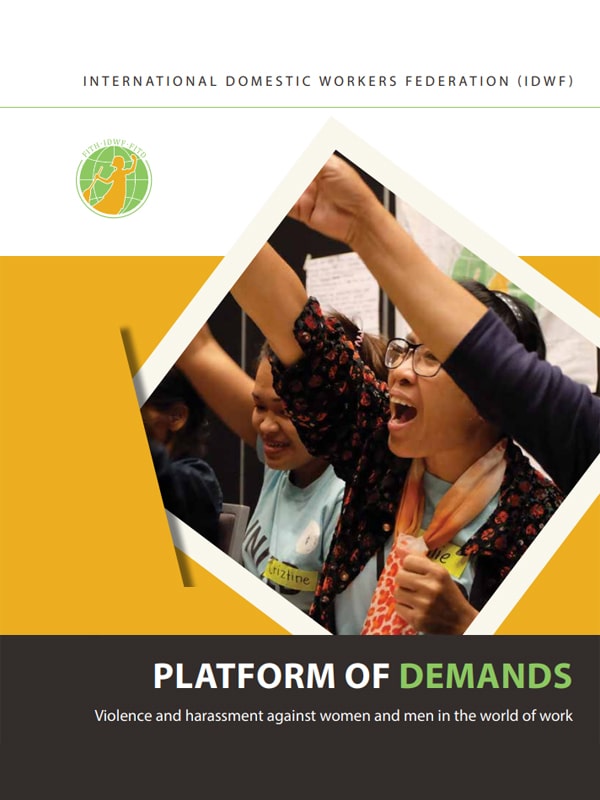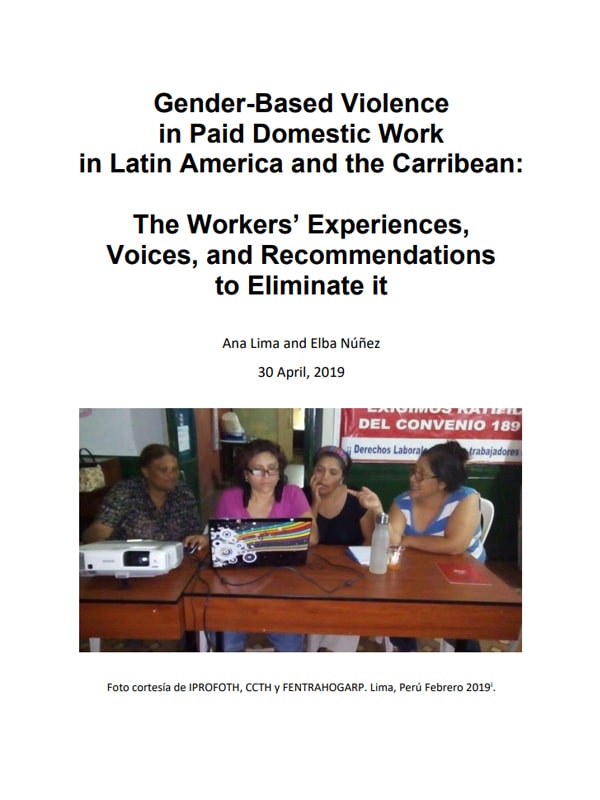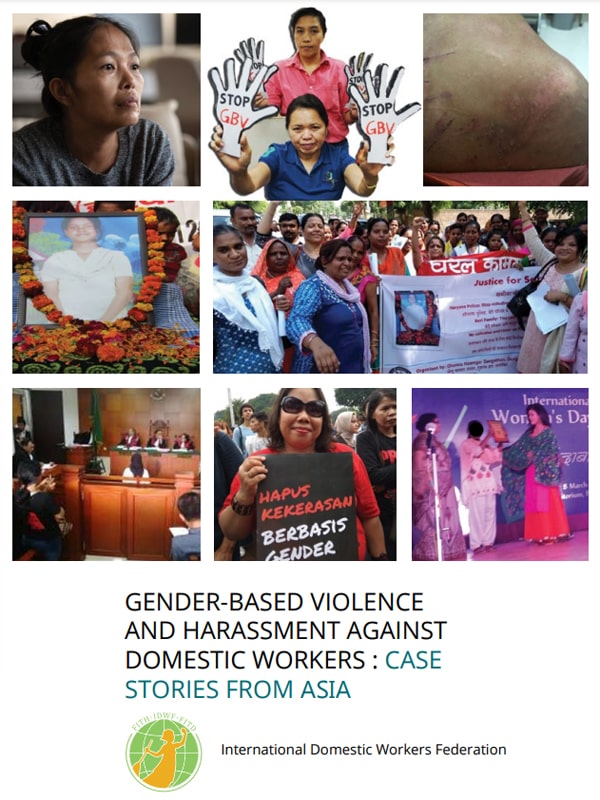ILO Convention 190 on Violence and Harassment in the World of Work; It can change lives!
Violence and harassment in the world of work can happen everywhere – online, in the physical workplace, during the commute, where workers rest, eat or attend to their health and sanitation needs, and at social gatherings.
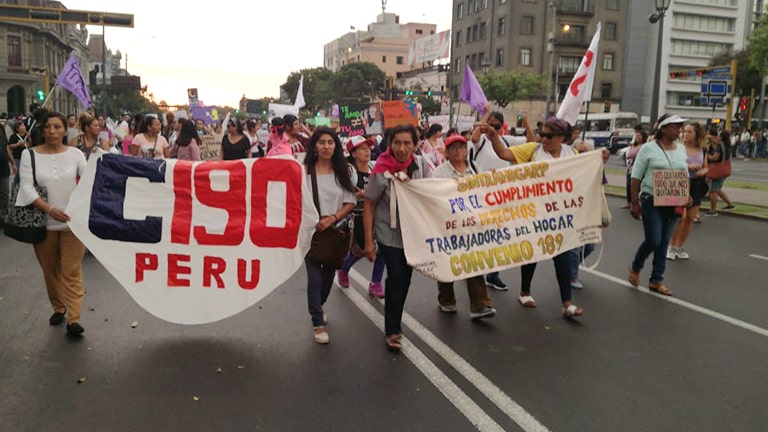
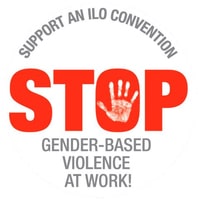
C190 Campaign
Support IDWF Campaign to Stop Gender-based Violence, Support ILO Convention
We can make it stop!
In June 2019, the International Labour Conference said STOP to violence and harassment in the world of work by adopting a ground-breaking international tool, Convention 190 (C190) and Recommendation 206 (R206).
This new Convention protects all workers irrespective of their contractual status; interns, apprentices, people in training, workers whose employment has been terminated, volunteers and job seekers.
- It has a strong focus on gender-based violence. Women are disproportionally affected by violence and harassment in the world of work.
- The Convention covers all sectors in the public and private sector, rural and urban, formal and informal economy.
- Its scope is the world of work, which is larger than only the actual workplace.
- Convention 190 leaves no one behind.
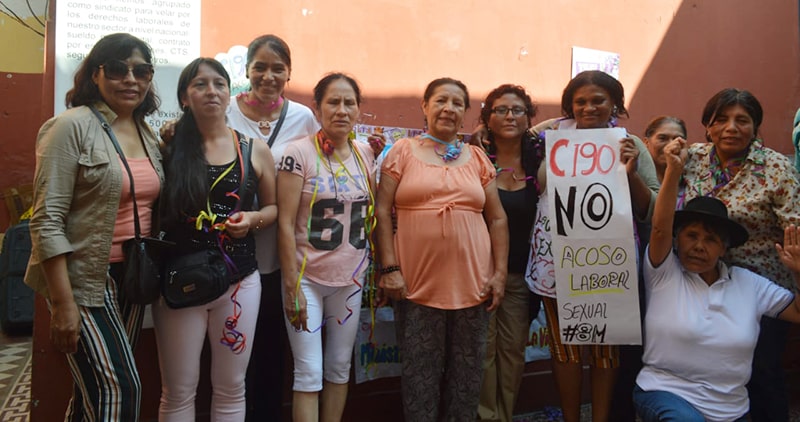
The Coronavirus, COVID-19, is highly infectious. It spreads through contact with people who already have the virus, usually through inhaling infected droplets when a person with the infection coughs or sneezes. You can also get infected by touching contaminated surfaces and then touching your eyes, mouth or nose.
- It has a strong focus on gender-based violence. Women are disproportionally affected by violence and harassment in the world of work.
- The Convention covers all sectors in the public and private sector, rural and urban, formal and informal economy.
- Its scope is the world of work, which is larger than only the actual workplace.
- Convention 190 leaves no one behind.
All of us in the world of work – governments, employers and workers – have a role to play in providing and sustaining a work culture based on mutual respect and dignity.
- As the Convention has a strong focus on gender-based violence, it is a meaningful tool to fight discrimination and inequality in the world of work.
- The Convention states that governments shall adopt legislation ensuring the right to equality and non-discrimination in employment and occupation for all, including women, migrants, people with disabilities and multiple and intersecting identities, whether race, ethnicity, indigenous status, sexual orientation and gender identity.
- Workplace risk assessments, as set out in the Convention, can also help to change attitudes since they can take into account factors that increase the likelihood of gender-based violence and harassment (like gender, cultural and social norms).
- And C190 also includes, for the first time, domestic violence as an element that affects employment, as well as the health and safety of workers.
- Violence and harassment are a range of unacceptable behaviours and practices or threats that can happen once or many times, with the aim of, or result in, or are likely to result in physical, psychological, sexual or economic harm.
- Violence and harassment are more than physical abuse. It can take the form of sexual harassment, verbal and emotional abuse, bullying, mobbing, threats and stalking. Denial of resources or access to services and other deprivations of liberty are also forms of violence.
- Perpetrators can be employers, managers, supervisors, peers, colleagues, as well as third parties, like clients, employers’ relatives or friends, and service providers.
- Violence affects both men and women, although women are disproportionally affected.
- It is called gender-based violence when it is directed at a person because of their sex or gender.
- One in three women and girls, irrespective of their economic status, experience violence in their lifetime
C190 and trade unions – This is our tool, and we should use it!
- Gender-based violence and harassment, including domestic violence, should be mainstreamed into safety and health at work.
- Employers are required to take measures and develop workplace policies in consultation with trade unions, to prevent violence and harassment.
- It obliges states to provide trade unions with resources and training on violence and harassment in the world of work, including gender-based violence.
- C190 will enter into force 12 months after two ILO member states have ratified it. But unions do not need to wait for ratification; we should already use this instrument to change the lives of workers.
C190 provides momentum for trade unions and other stakeholders to fight violence and harassment in the world of work.
- Promote non-discrimination and equality through campaigns and collective bargaining.
- Educate members about what violence and harassment in the world of work is.
- Raise awareness among members on C190 and its importance. C190 is a life changing convention that will help millions of workers have safer working environments, helping eliminate all forms of violence and harassment, especially gender-based violence.
- Include language in collective bargaining agreements based on these instruments (C190/R206).
- Work with employers in making sure that health and safety policies include violence and harassment, and more specifically gender-based violence.
- Support the work of global union federations in the negotiation of global framework agreements to include language based on the instruments (C190/R206) to fight violence and harassment in the world of work
As unions, we have an essential role to play in making sure that this Convention is transformed from paper into reality. We need to work together so that member states ratify the Convention and make it part of their national laws.
- Raise awareness and provide education to union members and society at large
- Actively campaign for the ratification of C190 in each country.
- Mobilize around the issue of violence and harassment in the world of work
- Build alliances with other trade unions, national centres, NGOs and especially women’s rights groups to help eliminate workplace violence and harassment
- Develop structures for advocating the ratification


